Driving change: Telfer’s third annual SDG Week inspires action
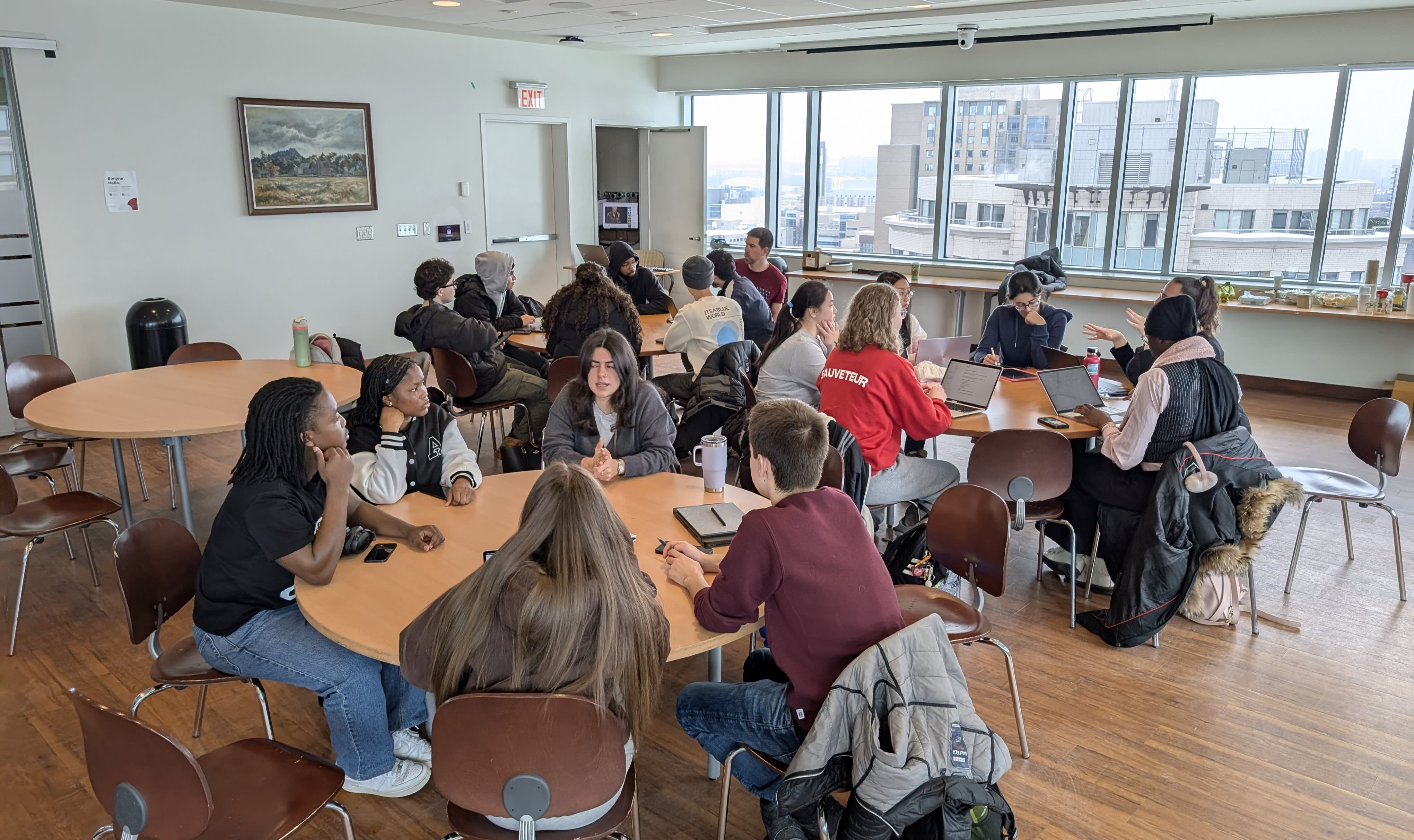
From March 3 to 7, 2025, uOttawa once again participated in SDG Week Canada. It was run by the Telfer School of Management, Telfer’s Centre for Sustainable Impact (CSIID) and the new Green Academy. Work was led by Telfer professors Daina Mazutis and Sharon O’Sullivan, in collaboration with the UOSU Sustainability Centre, the Office of Campus Sustainability and a dedicated group of volunteers. This week-long journey was an electrifying mix of knowledge and action.
This year’s activities were buzzing with bold ideas, radical imagination and hands-on experimentation. Students, experts and industry leaders came together to reimagine a more sustainable world. That was the pulse of Telfer’s third annual SDG Week, where minds united to tackle global challenges through the lens of the United Nations Sustainable Development Goals (SDGs).
Healthy planet, healthy people — March 3
The week began with information tables highlighting SDG-related campus initiatives. The SDG booth by Employment and Social Development Canada engaged students with gamified activities to raise awareness of the 2030 Agenda and the UN SDGs. The booth sparked impressive participation and insightful discussions with government officials.
Meanwhile, a yoga session emphasized the interconnectedness of planetary and human well-being.
Sustainable cities — March 4
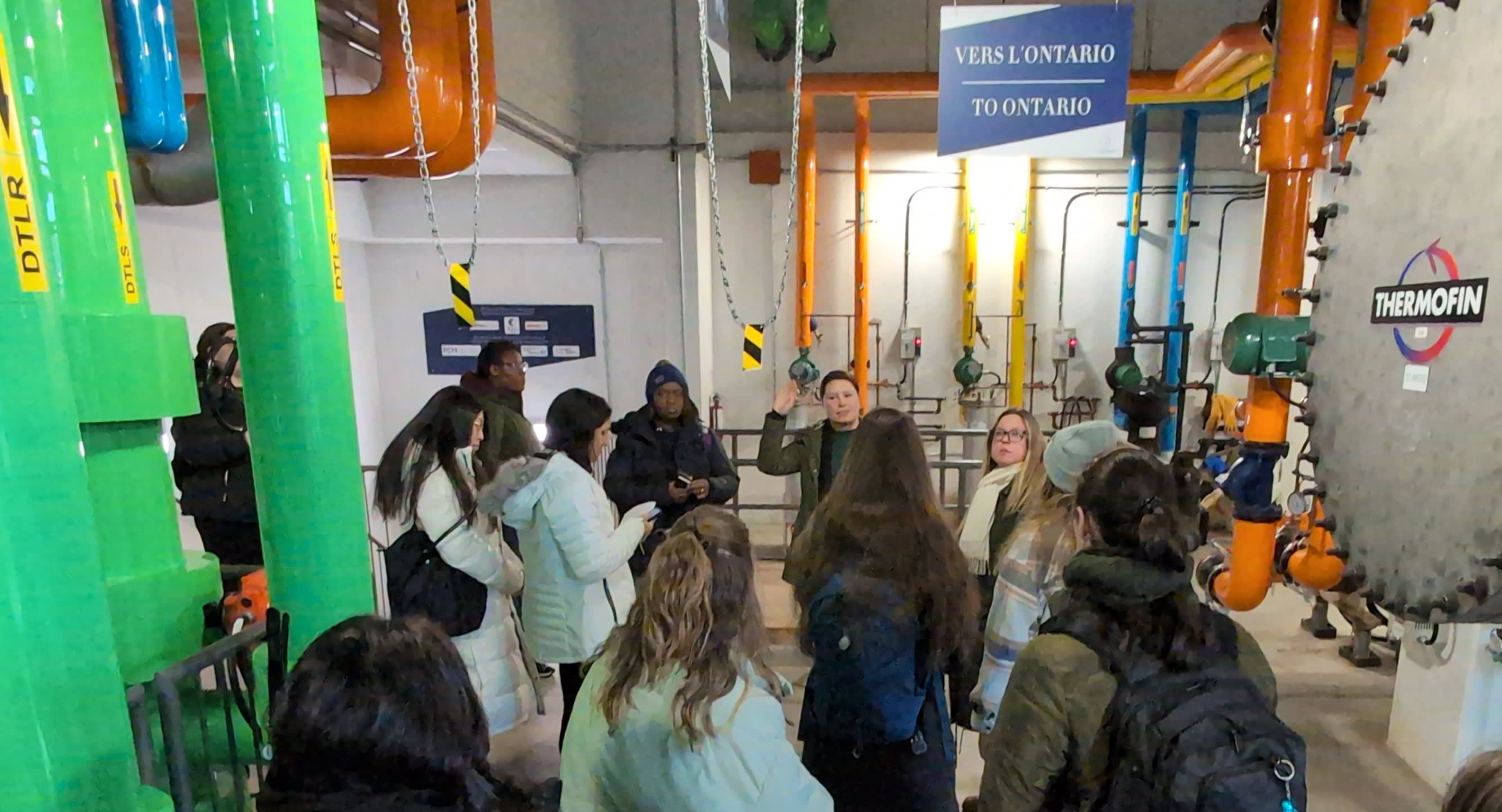 The second day tackled the urgent challenge of urban sustainability. A select group of students had the unique opportunity to visit Zibi, an ambitious development on the Ottawa River straddling both Ontario and Quebec. This eco-district is built around the One Planet Living framework. It’s a testament to what’s possible when sustainability is built into the DNA of a city. Students explored the district’s zero-carbon initiatives and its innovative approach to balancing people, planet and profit in urban planning.
The second day tackled the urgent challenge of urban sustainability. A select group of students had the unique opportunity to visit Zibi, an ambitious development on the Ottawa River straddling both Ontario and Quebec. This eco-district is built around the One Planet Living framework. It’s a testament to what’s possible when sustainability is built into the DNA of a city. Students explored the district’s zero-carbon initiatives and its innovative approach to balancing people, planet and profit in urban planning.
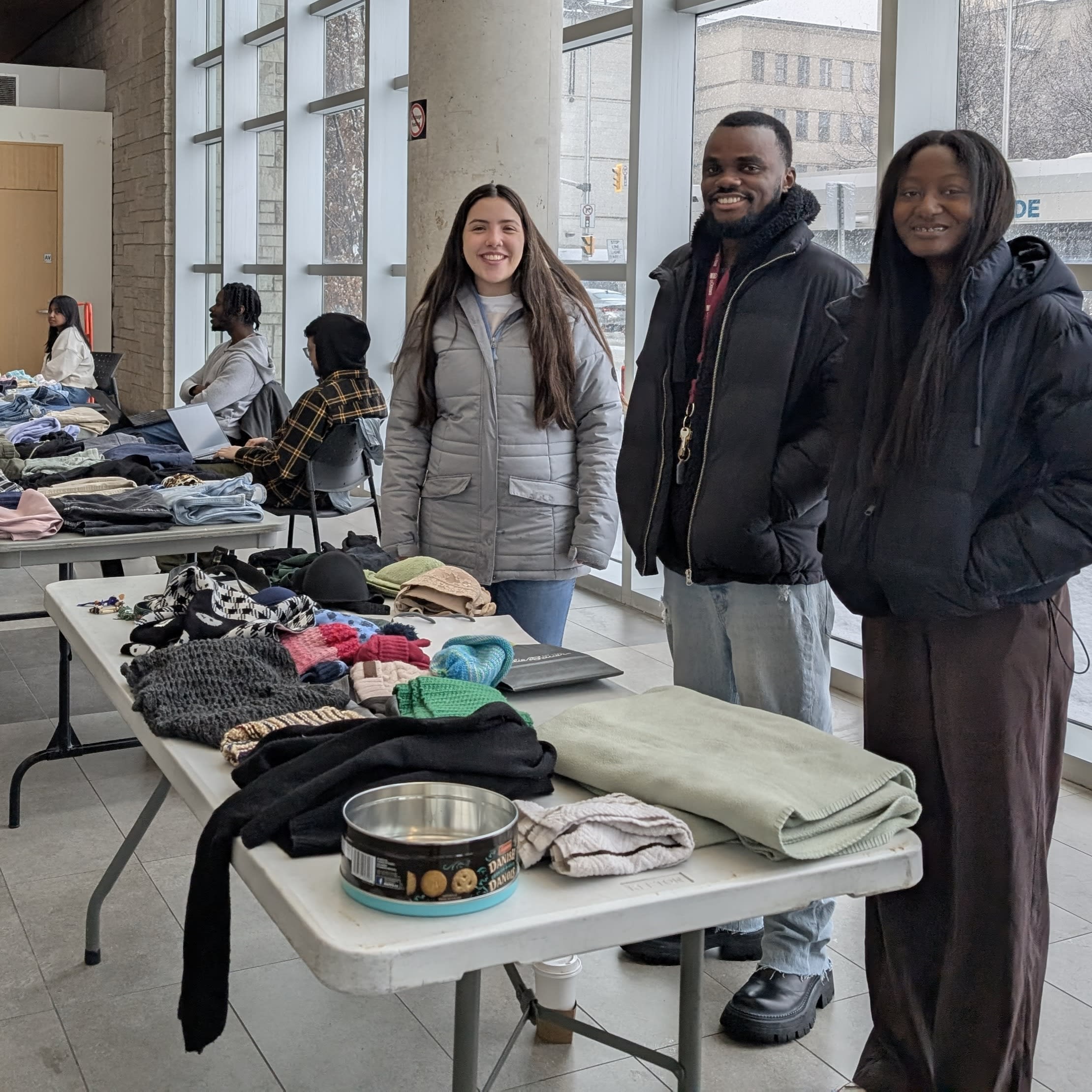 Back on campus, the Free Store pop-up promoted circular economy practices, encouraging students to rethink consumption. The Free Store serves as a one-stop shop on campus where members of the uOttawa community can donate and pick up items for free. This creates a sustainable exchange that keeps usable goods out of landfills.
Back on campus, the Free Store pop-up promoted circular economy practices, encouraging students to rethink consumption. The Free Store serves as a one-stop shop on campus where members of the uOttawa community can donate and pick up items for free. This creates a sustainable exchange that keeps usable goods out of landfills.
Also on the agenda was an interactive zero-waste campus tour taking participants through key sustainability initiatives on and around campus.
Meanwhile, the panel “The City of Tomorrow: Innovating for Sustainable Communities” featured passionate sustainability advocates Raymond Leury, president of the Electric Vehicle Council of Ottawa (EVCO); Angela Keller-Herzog, executive director of Community Associations for Environmental Sustainability; and William van Geest, executive director at Ecology Ottawa. Moderated by Professor Sharon O’Sullivan, the conversation explored real-time strategies for sustainable cities. It covered urban mobility, green infrastructure and the role of policy in driving the transition to sustainable commuting.
The EVCO gave students a chance to explore and test-drive electric cars, including a Tesla, Hyundai Ioniq 5, Chevrolet Equinox and Cadillac Lyriq. This opportunity showcased the latest in sustainable transportation.
The day concluded with the “Nailing a Sustainability Career” session, organized by the Institute of the Environment (IE) graduate students. The session featured Professor Jérôme Marty from the University of Ottawa, Olivia Richardson from the Smart Prosperity Institute, Maxime St-Jacques from Natural Resources Canada and Brittanny Belanger from Earthub. Moderated by IE PhD students Maria Hinostroza and Gabrielle Dorr, the panel attracted a diverse audience of students from environmental science, management, law, finance and more. This broad reach highlighted how sustainability is integrated into all sectors. Panellists emphasized the growing demand for professionals who can balance economic, social and environmental factors.
Sustainable entrepreneurship — March 5
Telfer professor Mathieu Bouchard’s future-oriented workshop challenged students to imagine and design the radical sustainable futures they wish to see. Teams pushed boundaries, challenging themselves to rethink the current information, housing and transportation systems through radical imagination.
Kathleen Kemp, director of uOttawa’s Entrepreneurship Hub, led the Eco-Innovators Lab. It provided an overview of sustainable business model creation and fostered collaboration and creative problem-solving. The highly anticipated pitch competition then took centre stage, showcasing the impromptu student groups’ bold ideas for green businesses to advance a circular economy.
The winning pitch introduced cellulose-based biodegradable pill bottles, a solution to reduce landfill waste and promote sustainability. In recognition, the team was awarded a $300 prize. The competition showcased how businesses can thrive by embracing strategic, forward-thinking innovation and become powerful engines for economic growth through sustainability.
The power of equity — March 6
Day four took a deep dive into the social dimensions of sustainability with a session titled “Allies in a Dangerous Time: Navigating DEI With Two-Eyed Seeing.” This equity allyship workshop was organized by Telfer professor Sandra Schillo and co-hosted by uOttawa’s vice-provost of equity, diversity and inclusive excellence; Institute for Science, Society and Policy; and CSIID. It featured Tera McDonald, founder of Kalawikk Diversity Inc., and provided participants with the tools to recognize privilege, build inclusive spaces and advocate for systemic change. This session underscored the crucial role of equity in shaping a truly sustainable future where no one is left behind.
Zero waste and zero hunger — March 7
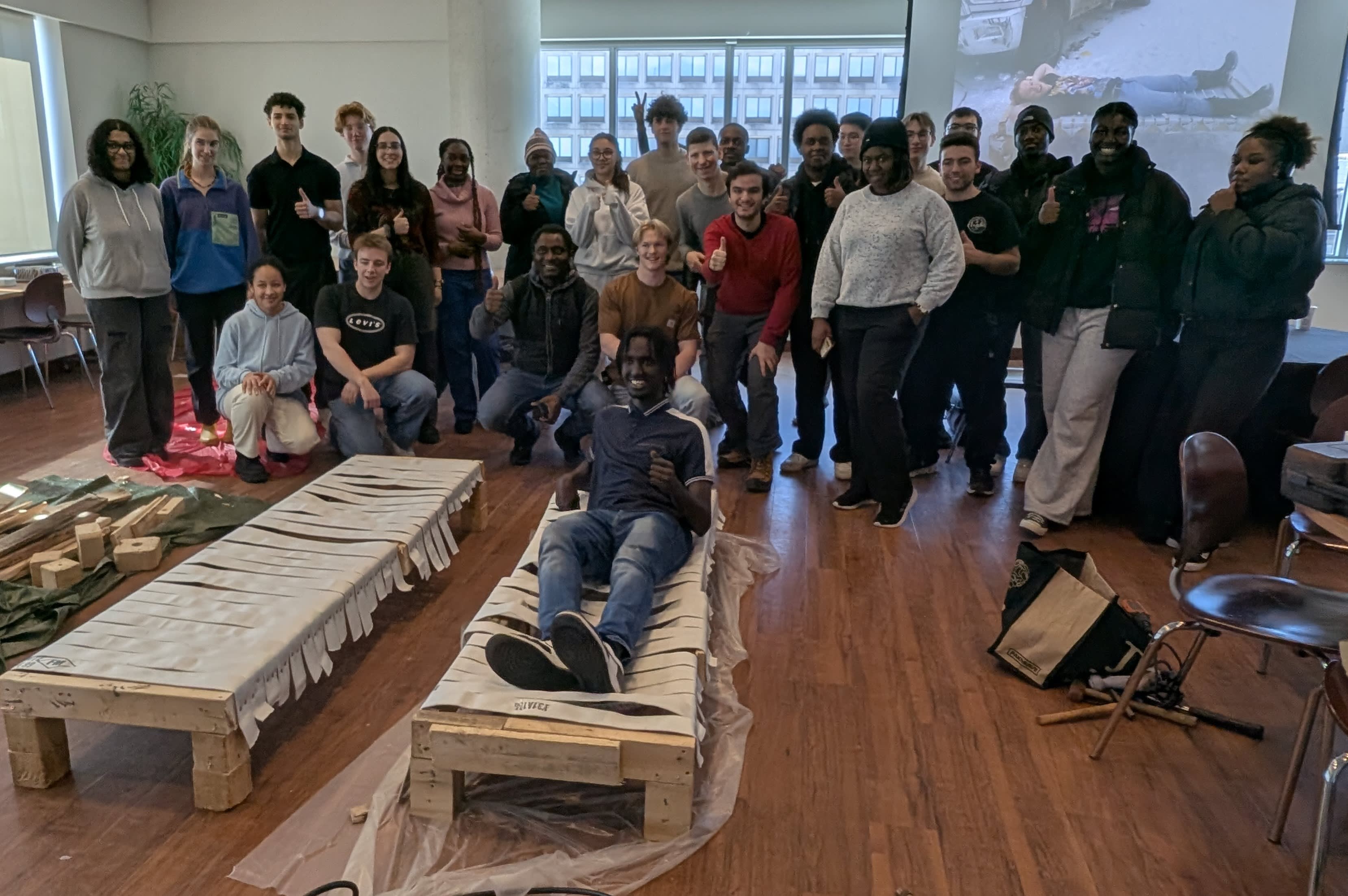
Students rolled up their sleeves for a creative upcycling workshop, hosted by uOttawa’s Upcycling Club. Participants worked to repurpose scrapped firehoses into emergency shelter cots — an ingenious blend of sustainability and social impact.
The final panel, “Feeding Communities, Not Landfills,” tackled food waste and food security head-on. Panellists included Jennifer Williams, founder of Goodfood2u; Moe Garahan, executive director of Just Food; Rachael Jones, program manager for solid waste services at the City of Ottawa; and Phil Nowotny, an experienced sustainability advisor currently responsible for waste reduction strategies at Ottawa Tourism. Moderated by Professor O’Sullivan, the panel discussed redistributing surplus food, reducing waste and strengthening local food systems. They emphasized local support, sustainable consumer choices and collaboration.
This week’s panels were catered by Chef Ric’s, a social enterprise providing affordable meals and a culinary training program with the Ottawa Mission. The program helps people facing barriers to build careers in the food industry.
The day wrapped up with popcorn and a screening of Just Eat It, a compelling documentary exposing the staggering waste of edible food globally. The film explores the environmental, ethical and financial impacts of food waste.
One week, five themes, countless ideas: proof that at Telfer, sustainability isn’t just an aspiration — it’s a movement in motion.
![]()
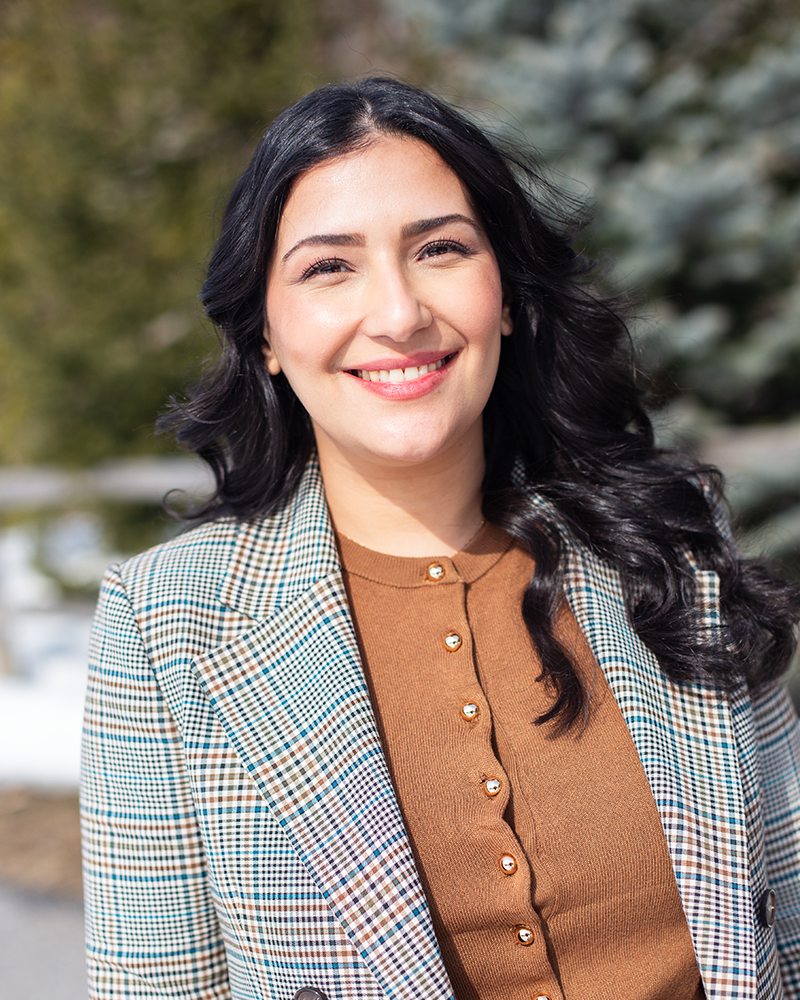 This article was written by Takwa Youssef, coordinator of Telfer's Green Academy.
This article was written by Takwa Youssef, coordinator of Telfer's Green Academy.
As coordinator of the Green Academy, Takwa plays a key role in supporting the delivery of the academy's interdisciplinary programs. She oversees logistics, event coordination, and resource management, ensuring the successful execution of courses, workshops, training, and research. Takwa bridges faculties, services, and external partners, cultivating collaboration that enriches the program’s impact. She manages communication, finances and administration, while also driving the Academy’s long-term vision by strengthening connections across disciplines and supporting its ongoing growth.